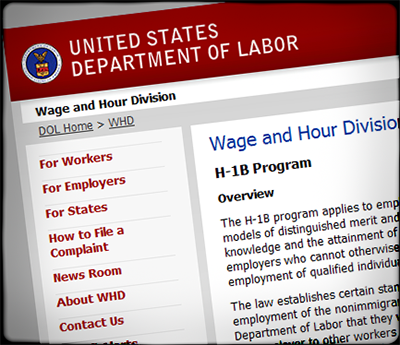
Two bits of bad news on the H-1B front:
- There were more applications filed this year (304,000) compared to last year’s 275,000; and
- Many employers, having faced difficulty importing H-1B workers during the pandemic, have turned to the Optional Practical Training (OPT) program.
All of this from an article in the May 8 New York Times.
The 304,000 number, as the Times carefully did not mention, does not have much relation to reality; were all the applications to be granted (there is an annual ceiling of 85,000), most of them would not be used. Knowing that there will be a surplus of petitions filed, employers file a surplus of applications themselves, so that they can get what they want from the annual lottery. They did that again this year, a process made easier because an employer does not have to file a full application to get a lottery ticket. One files a modest piece of paper for the lottery and only if the employer wins does it have to file a full-scale application.
Making the process easier is a godsend to employers, and a handicap to U.S. workers, but in this life, employers prevail.
The second development is more important than the first, because it has given too many employers yet another way to avoid hiring American workers. The paper’s headline in the print edition was appropriate: “Restrictions on H-1B Visas May Not Actually Create Lots of American Jobs”.
As we reported last week, the number of H-1B visas issued to people in India is sure to drop in the next weeks, and maybe months, because of the virus, but this will not impact the total of hires of Indian nationals, as there are many already in the U.S. who can adjust status, rather than secure a visa from the State Department.
This article, written by Youyou Zhou, carried with it an unusual footnote, which suggested more funding for its writing than usual. It said: “This article was reported with support from the McGraw Center for Business Journalism at the City of University of New York’s Newmark Graduate School of Journalism.”
The author mentions another way that employers can avoid hiring American workers: “[M]any foreign nationals ... are already working at tech companies with student work permits.” And despite the financial support the article received, it fails, in the grand tradition of the Times, to note that those with work permits in the Optional Practical Training program are supported by a subsidy taken out of the Social Security, Medicare, and federal unemployment insurance trust funds. This is the case because all employers of OPT workers, and some of the workers, do not pay the payroll taxes that support these funds.
Not only are the OPT workers supported by our ailing and aging, most of them are not, as the Times writes, students; they are recent college grads, they are alumni. It’s too bad that the Times copy desk, staffed I am sure by college alumni, does not pick up on that continuing error.
